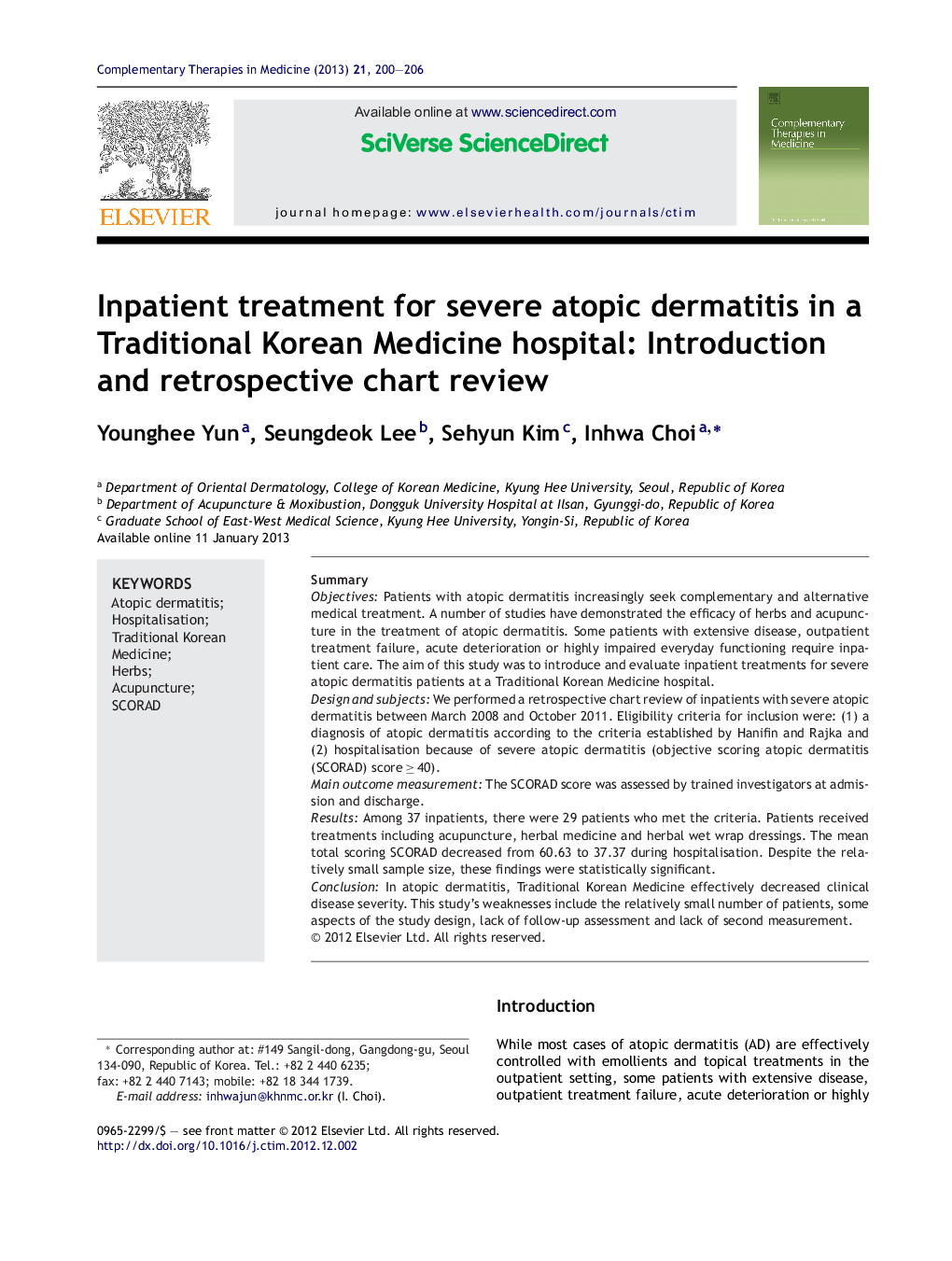| Article ID | Journal | Published Year | Pages | File Type |
|---|---|---|---|---|
| 2628893 | Complementary Therapies in Medicine | 2013 | 7 Pages |
SummaryObjectivesPatients with atopic dermatitis increasingly seek complementary and alternative medical treatment. A number of studies have demonstrated the efficacy of herbs and acupuncture in the treatment of atopic dermatitis. Some patients with extensive disease, outpatient treatment failure, acute deterioration or highly impaired everyday functioning require inpatient care. The aim of this study was to introduce and evaluate inpatient treatments for severe atopic dermatitis patients at a Traditional Korean Medicine hospital.Design and subjectsWe performed a retrospective chart review of inpatients with severe atopic dermatitis between March 2008 and October 2011. Eligibility criteria for inclusion were: (1) a diagnosis of atopic dermatitis according to the criteria established by Hanifin and Rajka and (2) hospitalisation because of severe atopic dermatitis (objective scoring atopic dermatitis (SCORAD) score ≥ 40).Main outcome measurementThe SCORAD score was assessed by trained investigators at admission and discharge.ResultsAmong 37 inpatients, there were 29 patients who met the criteria. Patients received treatments including acupuncture, herbal medicine and herbal wet wrap dressings. The mean total scoring SCORAD decreased from 60.63 to 37.37 during hospitalisation. Despite the relatively small sample size, these findings were statistically significant.ConclusionIn atopic dermatitis, Traditional Korean Medicine effectively decreased clinical disease severity. This study's weaknesses include the relatively small number of patients, some aspects of the study design, lack of follow-up assessment and lack of second measurement.
